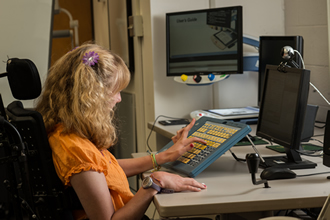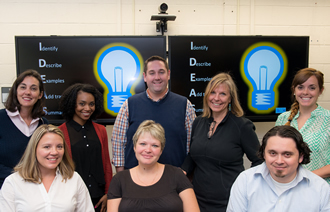ABA Workshop Series:
Ethics, Science, Pseudoscience, and Anti-Science in Autism
ABA Workshop Series: Ethics, Science, Pseudoscience, and Anti-Science in Autism
October 4, 2013
Dr. James T. Todd, Professor of Psychology at Eastern Michigan University, will talk about anti-science and pro-fad beliefs that have proliferated in the field of autism.
Workshop Title:
Ethics, Science, Pseudoscience, and Anti-Science in Autism
Presenter: James T. Todd, Ph.D.
Saturday, November 9th 2013: 9:00 AM - 4:00 PM
Verizon Auditorium, Science and Technology Campus
George Mason University - Fairfax Campus
WORKSHOP DESCRIPTION
Rather than ushering in a new age of science, the 21st century seems to have brought an explosion of superstitious beliefs, magical thinking, and the frauds that go with them. Unconstrained by concepts such as validity, reliability, rationality, logic, evidence, or ethics, anti-science and pro-fad beliefs have proliferated in the media and internet. Nowhere have we seen more evidence of this than in the field of autism. Even the most cursory examination of current practices shows that vast majority of autism treatments are not only not based on empirical evidence, many are clearly predicated on the rejection of accepted science. Even behavior analysis, as self-consciously scientific as it is, has not escaped the influence of autism pseudoscience. Having had the advantages of more than a century-and-a-half of psychological science, and centuries more of other sciences, it is no longer possible to accept that any popular notion about behavior problems or their treatment is likely to be as good as any other. To be ethical, we must be empirical. Thus, to be empirical is not just to have a practical advantage. It is a moral obligation for behavior analysts, and must extend beyond making decisions about contingencies of reinforcement to all aspects of professional behavior.
After this workshop, Participants will be able to:
- Describe some illustrative cases of current autism pseudoscience (Facilitated Communication and related practices, in particular);
- Describe fundamental elements of autism pseudoscience;
- Describe the difference between empirical and non-empirical or anti-empirical practices; and
- Describe methods for avoiding becoming enmeshed in non-empirical and anti-empirical practices.
Particular attention will be paid to the methods by which pseudoscience attempts to simulate an empirical foundation, how in the absence of evidence it establishes false credibility by testimonial and appeals to emotion, and how even seasoned professionals can fall victim to unscientific practices. Through lecture, video examples and group activities, the participants will leave with a better understanding of range and types of autism pseudoscience, the practices used to promote it, and how to combat it.
ABOUT THE PRESENTER
James T. Todd, Ph.D. is Professor of Psychology at Eastern Michigan University, having arrived there in 1990 after earning a Ph.D. in Developmental and Child Psychology at the University of Kansas under Edward K. Morris. To work his way through school, Todd worked as an engineer at KANU Radio in Lawrence for nearly seven years, and taught electronics and mathematics for five years at Kansas City Area Vocational Technical School. His basic research interests are in excessive and compulsive behavior in rats, activity anorexia and schedule-induced polydipsia, particularly. He is co-editor with Morris of two books on the history of behaviorism: Modern Perspectives on John B. Watson and Classical Behaviorism and Modern Perspectives on B.F. Skinner and Contemporary Behaviorism. He is an expert in pseudoscientific treatments for autism, particularly Facilitated Communication and Rapid Prompting, and has served as an expert witness and consultant in court cases involving facilitated communication. Todd was involved in creating the recently passed Michigan Autism Insurance bills and is assisting with legislation and rule-making for implementation. His most recent article "The Moral Obligation to Be Empirical: Comments on Boyton's "Confessions of a Former Facilitator" was published in the Summer issue of "Evidence-Based Communication Assessment and Intervention."






